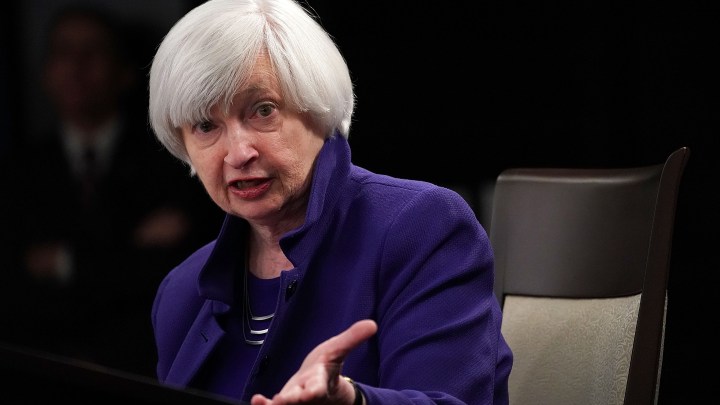
The U.S. hit its debt ceiling. Now it’s time for “extraordinary measures.”
The U.S. hit its debt ceiling. Now it’s time for “extraordinary measures.”

The federal government hit its debt limit. That means it can’t borrow any more money to keep paying its bills until — and unless — Congress votes to raise the limit.
Treasury Secretary Janet Yellen has said the Department will now take what are called “extraordinary measures” to be able to keep meeting most of its financial obligations for a little while longer, likely until around June.
“Extraordinary measures” sounds pretty dramatic, “like something that might be used in a “Harry Potter” film,” said Mark Hamrick at Bankrate.
“But really what that means is any number of different accounting maneuvers to conserve cash,” he said.
Basically — Treasury will have to move some money around so it can keep paying the country’s most important bills.
“This is not unlike a household budget, where some payments are absolutely necessary but perhaps another payment is more discretionary,” Hamrick said.
In this case — with the federal government — the kinds of payments that might be “more discretionary” includes “retiree funds for government employees,” says Dan Sichel at Wellesley College.
“There’s [also] a fund that is set up to use for stabilizing exchange rates,” he said.
Treasury can pull from them for now and pay them back later, if and when Congress does vote to raise the debt limit.
But those funds are limited, there’s only so long this can go on before they run out too and the U.S. government can’t pay its bills
“This is much like a family spending a bunch of money on a credit card,” Sichel said. “And then when the bill comes at the end of the month, saying ‘you know, I don’t want to pay the credit card bill.'”
The federal government has already basically bought a bunch of stuff, and raising the debt limit will just allow it to pay for it, says Rachel Snyderman at the Bipartisan Policy Center.
“The debt limit does not authorize new spending commitments, it really is just allowing the government to finance its existing legal obligations,” Snyderman said.
There’s a lot happening in the world. Through it all, Marketplace is here for you.
You rely on Marketplace to break down the world’s events and tell you how it affects you in a fact-based, approachable way. We rely on your financial support to keep making that possible.
Your donation today powers the independent journalism that you rely on. For just $5/month, you can help sustain Marketplace so we can keep reporting on the things that matter to you.

















